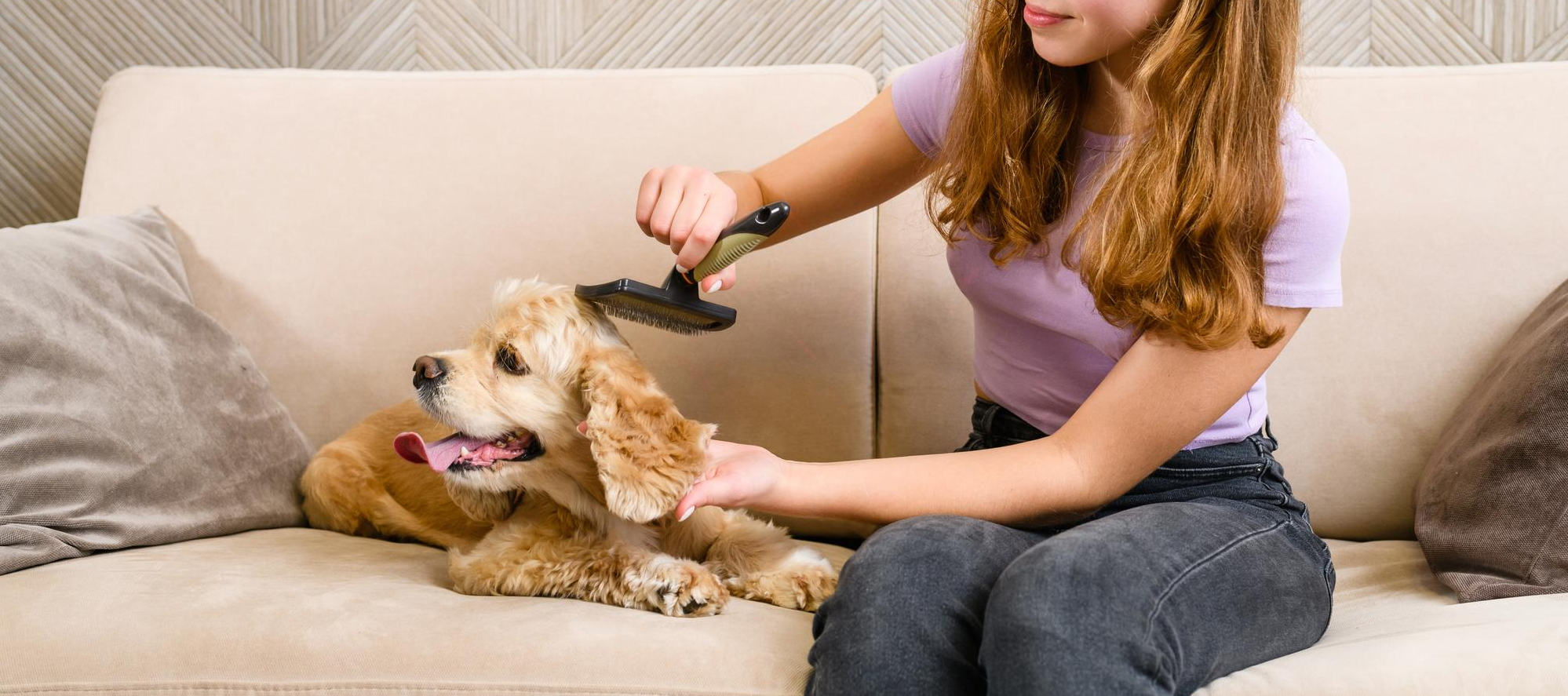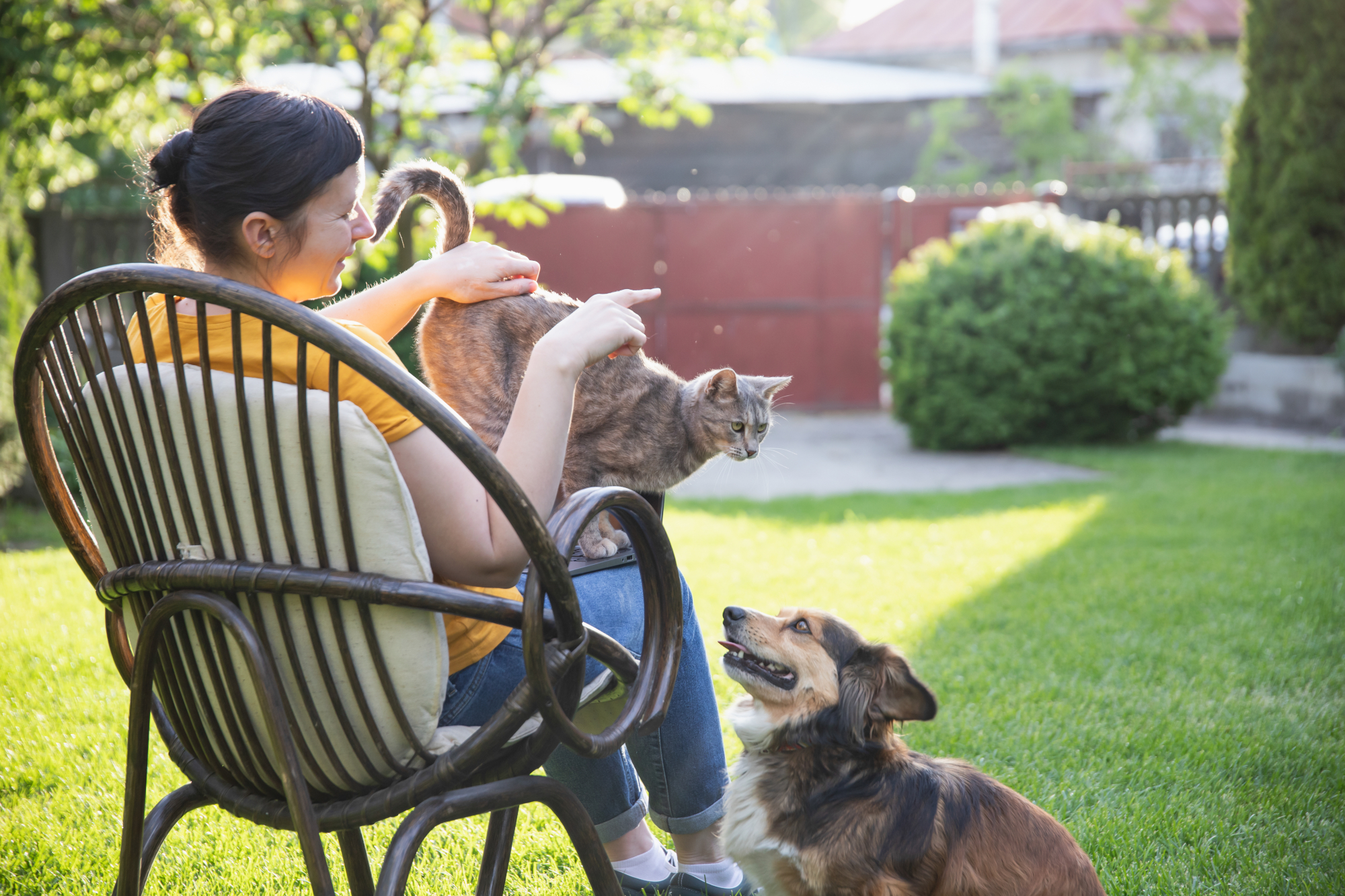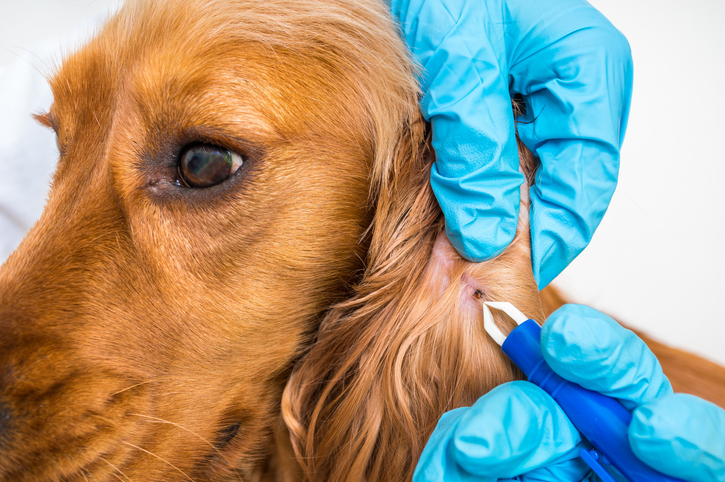As the old saying goes, an ounce of prevention is worth a pound of cure. When it comes to looking after pets like dogs, cats, and rabbits, we wholeheartedly believe in this philosophy. That’s why our veterinarians at Hastings Vet place such an emphasis on ensuring preventive, proactive care is in place for pets. It’s more than a single service we offer; it applies to every form of care we provide. It helps to promote health and wellness in your pet and prevent major issues and illnesses from cropping up later on.
What is Preventive Pet Care?
Preventive or proactive pet care refers to any kind of treatment or care that’s done before an issue is diagnosed. Preventive care is done to make sure these issues don’t occur at all, or at the very least to minimize the damage they do. Proactive pet care takes many, many forms, and is rarely the same from pet to pet. The best proactive care is tailored around each individual pet’s unique needs, helping them feel their best even as they enter old age.
It’s best to create a preventive care plan alongside your veterinarian. Between their depth of knowledge and experience with pet healthcare and your unique knowledge of your pet as an individual, you can collaborate to create a proactive health plan that will ensure a long, happy, and healthy life for your furry friend.
If you still need further guidance, keep reading. We’ll explain the simple steps that go into creating an effective preventive care plan for your pet. Done right, a plan like this will help your pet stay safe, healthy, and comfortable for years to come.
Balanced and Healthy Diet
One of the best things you can do for your pet’s long-term health is to provide them with a nutritious, healthy diet. Your dog or cat’s diet should be full of protein, fibre, and healthy fats, along with a long list of nutrients that their body needs. Likewise, rabbits need a specific diet of greens, veggies, and grains to remain healthy. Your veterinarian can provide recommendations for food and treats that will be suitable, and will always be happy to help you adapt as your pet’s needs change, such as when they get a little older.
Consistent Exercise
Alongside a healthy diet, a consistent exercise regime is one of the most important things for a pet’s overall health. Obesity can cause and/or worsen many common health problems we see in pets, such as arthritis. It’s far easier to keep an animal at a healthy weight than to help them lose weight—so be sure to ask your vet for any tips on promoting a healthy, active lifestyle for your pet.
Regular Blood Testing
Regular blood testing is crucial for veterinarians to get an early warning for potential health issues. Blood tests can detect all manner of issues, including blood cell counts (indicating immune function), levels of important nutrients, high or low enzyme levels caused by organ dysfunction, and much more. Your vet should have a plan in place for regular blood testing when you bring your pet in for their exam.
Other Types of Testing
Several other kinds of tests are invaluable for proactively checking a dog, cat, or even a rabbit for health issues. These might include tests of saliva, urine, or feces, all of which can be used to detect abnormalities and get an early warning of potential concerns. The exact nature of these tests might vary depending on your pet’s age, breed, health history, and even the region you live in. Your vet will be able to recommend certain tests and explain why they’re necessary for your specific pet.
Medical Imaging
Medical imaging, particularly radiography/X-ray, is often used proactively to detect internal issues that would otherwise be invisible. X-rays can be used to detect several potentially large problems before they become more serious. These might include:
- Tumours
- Cysts
- Early symptoms of heart and lung disease
- Arthritis
Your veterinarian should be able to lay out an ongoing schedule of X-ray imaging for your pet’s preventive health plan. The frequency might also increase as your pet gradually moves through their golden years.
Ongoing Dental Care
You and your veterinarian should work together to prioritize your pet’s dental health whenever possible. This is especially important for cats and dogs, who can be at risk for dental issues like gum disease, gingivitis, and periodontal disease if their oral health is left unchecked. Your vet should be doing a thorough dental exam of your pet with each visit, and you can do your part by keeping up with regular brushing and cleaning of your pet’s teeth at home.
Parasite Prevention and Immunizations
Parasite prevention and vaccinations are commonplace in preventive pet care plans. Your veterinarian will have provided your new cat, dog, or rabbit with all of the necessary shots it needs from the beginning, and will be able to keep track of which ones need updating, and when. For your part, you can help out by administering topical or oral parasite prevention treatments to your pet (such as anti-flea and tick medications for dogs and outdoor cats).
Spaying & Neutering
Not only does spaying and neutering prevent surprise litters of animals, it also drastically reduces your pet’s odds of developing serious medical conditions later in their life. This usually needs to be done quite early in the pet’s life and is an essential part of any proactive care plan for young cats and dogs.
Regular Vet Exams
Last, but certainly not least, regular vet examinations are absolutely vital for ensuring proactive care for your furry friend. No one knows your pet like you do, and no one understands how animal health works like a vet. Working together as a team, you can take a preventive approach to many health concerns that might pose a problem later on, ensuring a healthy, happy life for your pet.
Creative Commons Attribution: Permission is granted to repost this article in its entirety with credit to Hastings Veterinary Hospital and a clickable link back to this page.






